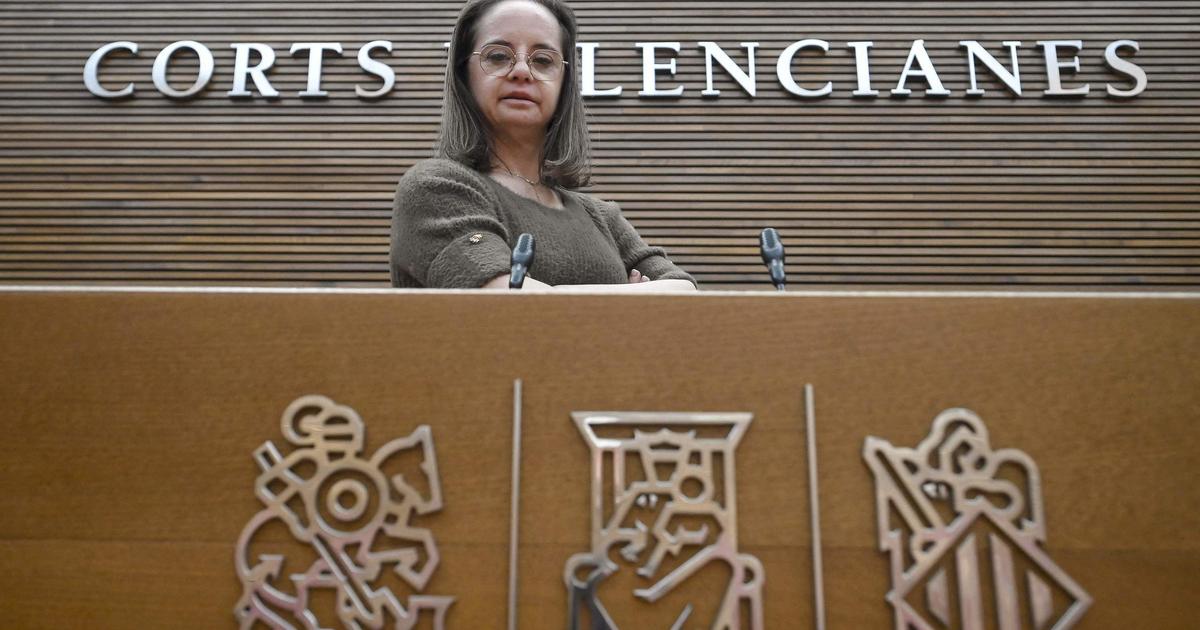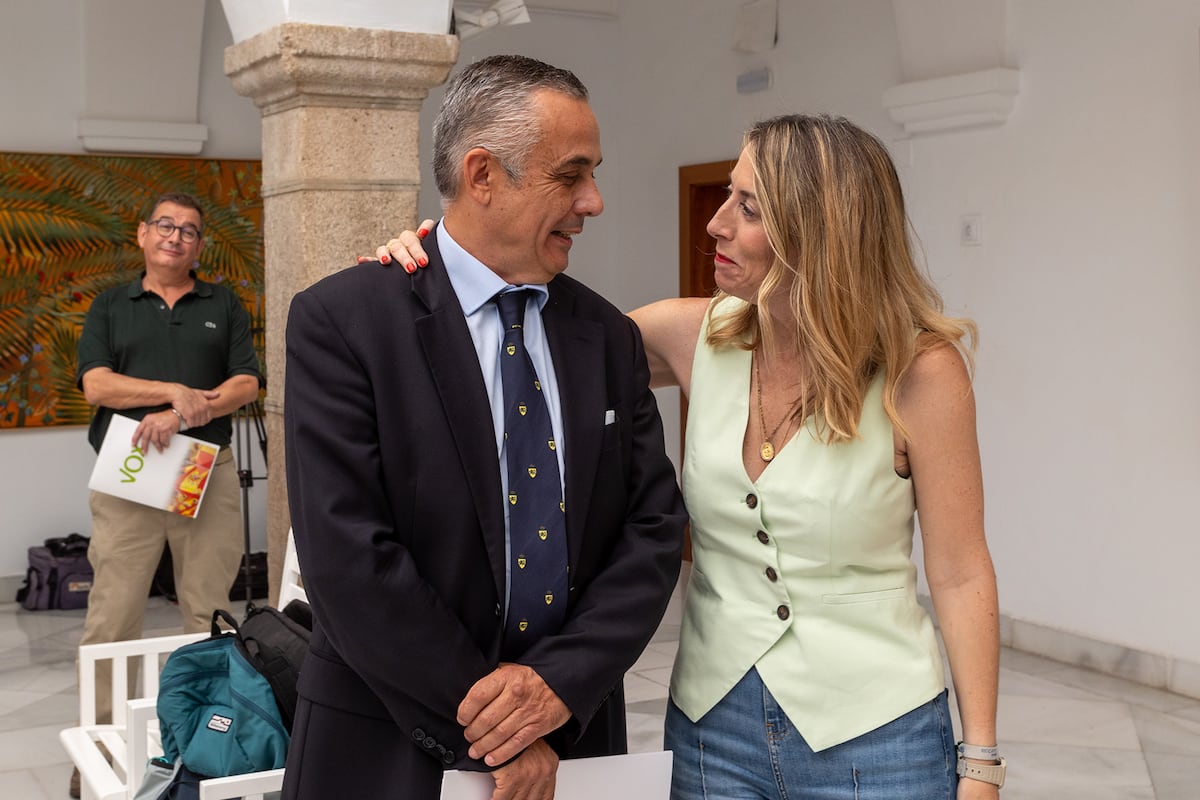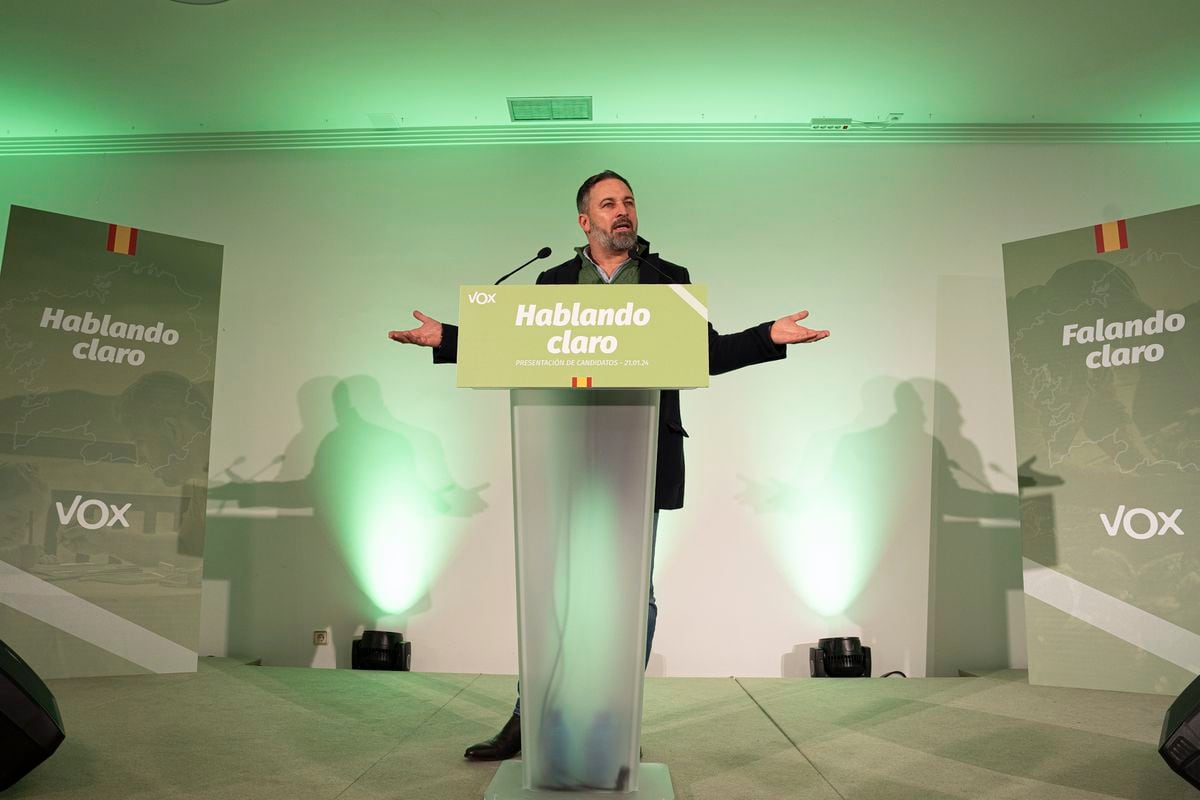The Government and the PP have reached an agreement in principle to reform article 49 of the Constitution and eliminate the term "disabled" from the constitutional text, replacing it with "persons with disabilities", as announced in Congress by the Minister of the Presidency, Félix Bolaños, and later confirmed the general secretary of the PP, Cuca Gamarra, that they met this Wednesday in the lower house.
The Executive will now discuss an agreed text with the popular, but also with the rest of the parliamentary groups, so that it is the broadest possible pact.
The PSOE and the PP have agreed to "adhere" the reform strictly to article 49 and avoid opening the melon of a broader discussion on the Constitution, as well as adjusting the text to the report prepared by the Council of State.
Article 49, in its current wording, says: "The public powers will carry out a policy of forecasting, treatment, rehabilitation and integration of the physically, sensory and mentally handicapped, to whom they will provide the specialized attention they require and will protect them especially for the enjoyment of the rights that this Title grants to all citizens”.
In the reform proposal approved by the Council of Ministers, the term "disabled", which according to Bolaños supposes "an almost offensive terminology", is replaced by "people with disabilities".
In addition, the text adds a reference to the fact that this group will enjoy the rights contained in the international treaties ratified by Spain.
However, the text that came out of the Council of Ministers will now be redrafted to add the contributions of the amendment registered by the PP, which includes the opinion of the Council of State in this regard.
A consensus will also be reached with the rest of the parliamentary groups and with CERMI, the Spanish Committee of Representatives of People with Disabilities.
Avoid a referendum
The Government and the PP have "laid the foundations" for an agreement, according to PP sources, with a consensus on the perimeter of the constitutional reform, which if successful would mean the first State pact between the Executive and the main opposition party in this legislature.
The agreed framework consists of limiting the constitutional amendment to disability, incorporating the opinion of the Council of State, and avoiding a referendum.
The PP came to the meeting with suspicion, fearing that the reform could function as
a Trojan horse
to open the melon of a broader modification of the Magna Carta.
The popular wanted guarantees from the government that their parliamentary allies will not force a referendum on the reform, according to party sources.
The Constitution establishes that one tenth of the deputies (35) can force a consultation to be held on any constitutional reform.
A figure reached by minority groups, the majority parliamentary partners of the coalition government.
Government sources have specified that they cannot guarantee that other groups will force a referendum, but the Executive shares with the PP that the reform be approved in the Cortes, without consultation, and in the dialogue that is now opening with the rest of the groups, that consensus.
The PP justifies its fears in the movement of some allies of the Executive, who have already registered amendments to the proposed reform of article 49 to include the debate on other issues that have nothing to do with disability.
This is the case of the PNV, which has registered a group of amendments, including one to
collect in an additional provision the "right to decide" of Euskadi
in an “exercise agreed with the State”.
The Basque group also proposes eliminating article 155 of the Constitution and eliminating the attribution to the Armed Forces of the function of guaranteeing the constitutional order and territorial integrity of Spain.
The reform "should be limited solely and exclusively to article 49," Cuca Gamarra stressed, on the other hand, in an appearance at the desk of Congress.
"That is what we have called for, so that no one takes advantage of this circumstance to try other objectives," emphasized the PP parliamentary spokesperson.
The general secretary of the popular has confirmed in any case the willingness of the PP to a quick agreement.
“We are going to give priority and for our part it will not be.
I am glad that this meeting took place.
It has taken a long time, but here we are."
For his part, the Minister of the Presidency congratulated himself "that the PP has changed its criteria and agrees to reform article 49", since the popular had registered an amendment to the entirety together with Vox.
The popular ones argued in that amendment that it was not "the opportune political moment" for the reform, due to the presence in the Government of "parties that openly question the Spanish Constitution and whose blowing up they intend."
The Government and the PP reproach each other for the delay in addressing this matter, despite their coincidence in substance.
So far this legislature it has not been possible for the PSOE and the PP to close even the minimum agreement for the renewal of the General Council of the Judiciary, which has been blocked for more than three years.
This matter has come up in the meeting between the Government and the PP on Wednesday, but as a mere cross of reproach, without any progress, according to sources on both sides.
The Spanish Constitution of 1978 has been reformed twice, both by the ordinary procedure.
The first, in 1992, to allow passive suffrage in municipal elections for foreigners, as required by the Maastricht Treaty of the European Union.
The second, in 2011, to introduce the concept of budgetary stability, during the economic crisis of 2008. Unlike previous times, now the PSOE and the PP do not have together 90% of the deputies of the chambers, so they are forced to count on other groups.
The ordinary constitutional reform procedure requires a three-fifths majority of each of the chambers.
If approval is not achieved, and provided that the text has obtained the favorable vote of the absolute majority of the Senate, Congress, by a two-thirds majority, may approve the reform.
The PSOE and the PP by themselves do not have three fifths or two thirds of the Congress, so the participation of other groups is necessary.
Subscribe to continue reading
Read without limits
Keep reading
I'm already a subscriber

/cloudfront-eu-central-1.images.arcpublishing.com/prisa/75RK4KVDXFE2NE4357ARO62KJA.JPG)




/cloudfront-eu-central-1.images.arcpublishing.com/prisa/JFGH6JBDQDQ6BYIQCCKNZHA2BA.jpg)
/cloudfront-eu-central-1.images.arcpublishing.com/prisa/FPX4B67MZLWS37UHUG42TPFNNA.jpg)

